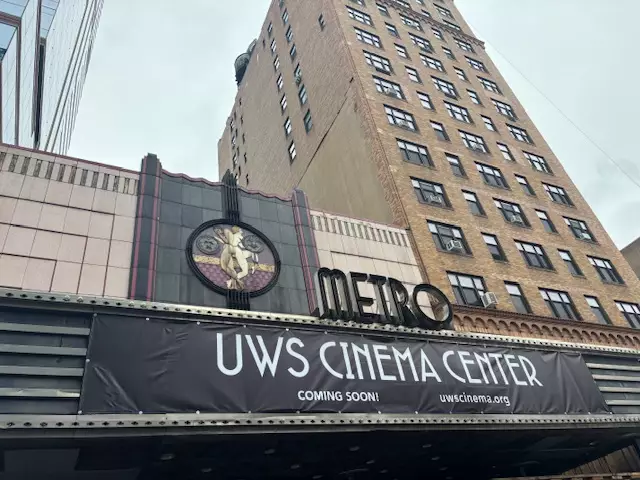The vibrant realm of independent cinema is poised for a significant revival on the Upper West Side of Manhattan with the ambitious project aimed at transforming the storied former Metro Theater into a state-of-the-art five-screen arthouse venue. This initiative, catalyzed by substantial grants from both public and private entities, embodies a crucial return to a cultural touchstone increasingly absent in the community.
A Symbol of Diminishing Cultural Landscapes
Once a beacon of artistic expression, the Metro Theater, with its storied Art Deco architecture and rich history, has languished unoccupied for nearly two decades. The deterioration of the space has mirrored an unfortunate trend: the decline of spaces dedicated to diverse artistic expression across urban landscapes. As new generations of film enthusiasts have emerged, previously bustling venues have shuttered, leaving a glaring void in cultural offerings. The absence of spaces like the Metro represents more than nostalgia; it highlights a broader societal challenge where communal gathering and shared experiences are increasingly supplanted by impersonal digital interactions.
Community-Fueled Renaissance
At the heart of this revitalization is the newly established Upper West Side Cinema Center, spearheaded by visionary filmmakers Ira Deutchman and Adeline Monzier. Together, they have garnered remarkable support from a coalition of local residents, artists, and patrons who recognize the necessity of preserving artistic venues. Their efforts have not only spotlighted the pressing need for cinematic spaces but have ignited a rekindled passion for film amongst both novices and seasoned aficionados alike.
With the support of notable film industry figures such as Martin Scorsese and Frances McDormand—who have lent their expertise and credibility to the initiative—the project has galvanized local enthusiasm. Their endorsements serve as a powerful reminder that independent films deserve a platform, particularly within urban environments where community members can engage with film as an artistic and conversational medium.
Phases of Transformation
The vision for the new theater extends beyond mere screenings; it aspires to nurture an educational hub alongside traditional cinematic offerings. By incorporating an education center and a café that invites guests to linger, the initiative is designed to foster community engagement. Local residents will have a place to gather, converse, and immerse themselves in film culture. Deutchman and Monzier’s foresight illustrates a profound understanding that today’s audiences seek not only entertainment but also enrichment through cultural experiences.
However, the journey is just beginning. The Upper West Side Cinema Center is now embarking on an ambitious fundraising campaign to turn their vision into reality, with estimated costs ranging between $15 million and $22 million. Thanks to proactive support from New York State, including Governor Kathy Hochul’s generous grants, the project has secured a strong financial foundation to propel forward. This funding has provided the necessary extension to finalize the acquisition of the building, demonstrating substantial governmental commitment to revitalizing cultural spaces within New York City.
The Emotional Weight of Preservation
Governor Hochul encapsulated the emotional weight of the project when she remarked on the importance of restoring the theater as more than just bricks and mortar. She emphasized the need to breathe life back into a space that has long been shrouded in silence. This restoration signifies more than cinematic revival; it represents a fight against the erosion of community connections that traditional theaters have historically fostered.
As Deutchman poignantly stated, the “faded symbol of cultural vibrancy” that has marked the landscape since 1933 stands as a silent testament to what cultural engagement should embody. The resurgence of the Metro Theater as a vibrant cinemagoing experience promises to reforge bonds within the community—but it also calls upon residents to participate actively in that renaissance. In a world increasingly defined by isolation, this project is a bold assertion: that shared experiences matter, and cultural venues are essential for communal identity.
A Vision for the Future
As plans unfold, it is clear that the Upper West Side Cinema Center is not merely restoring a historic space; it is reinvigorating a community hungry for connection, dialogue, and artistic expression. As our society grapples with the implications of a fragmented cultural landscape, the return of the Metro Theater becomes a necessary watchword for inventive solutions to modern challenges. The imminent theater revitalization encapsulates a profound insight: that arts and entertainment can weave together the fabric of a community’s identity, bridging gaps and forging connections through the universal language of cinema.
